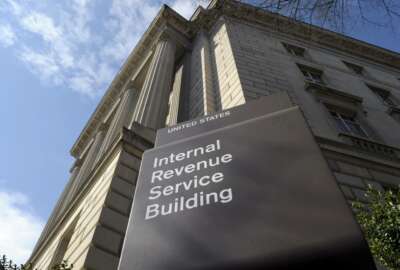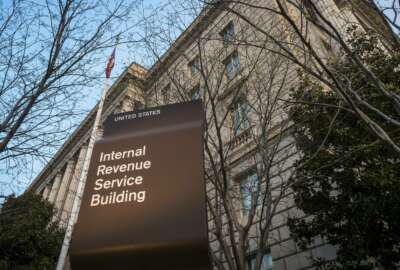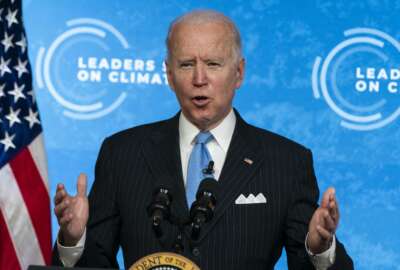The Biden administration’s plans to fund the IRS remain mostly intact as part of a pared back Build Back Better Act framework.
The IRS, under the framework released by the House Rules Committee on Thursday, would get $44 billion in enforcement spending over the next decade. This budget would include funding to support criminal investigations, provide cryptocurrency monitoring and compliance, and purchase vehicles for enforcement personnel.
The Biden administration said this investment in enforcement will allow the IRS to collect an additional $400 billion dollars in taxes owed.
Increased IRS enforcement would not only help the administration cover the cost of its $1.75 trillion spending package, but would mark a turning point for an agency that has seen its workforce and budget decrease over the past decade.
The White House, in a statement Thursday, said the framework would restore the enforcement capabilities of a “gutted IRS.” The administration said long-term budget cuts have led to a 60% decrease in audits over the past decade on taxpayers earning over $1 million annually.
“The framework will create a fairer tax system through transformation investments in the IRS: hiring enforcement agents who are trained to pursue wealthy evaders, modernizing outdated IRS technology, and investing in taxpayer service, so regular Americans can get their questions answered and access to the credits and benefits they are entitled to,” the White House said.
That projection far exceeds what the Congressional Budget Office estimated last month. Had the IRS received $60 billion to bolster its enforcement operations, CBO expected the agency to collect an additional $200 billion in taxes owed over the next decade.
The IRS under the framework would also get more than $27 billion for its operations support budget, which includes everything from rent payments and building security to IT and telecommunications. It would also receive nearly $2 billion for taxpayer services.
The agency would also receive nearly $5 billion to continue its IT modernization push and develop a call-back feature for taxpayers trying to reach the IRS.
The framework would also create a task force to determine the feasibility of the IRS running its own free “direct e-file” tax return system.
The IRS, on its website, says the agency hasn’t provided its own online free file option because its Free File Alliance of private companies “brings the best of industry resources for government customers.”
“Private industry, with established expertise and experience in electronic tax preparation, has a proven track record in providing the best technology and services available,” the website states.
The Treasury Inspector General for Tax Administration would get $403 million to oversee this spending.
Chad Hooper, executive director of the Professional Managers Association, said the framework, pending final approval from Congress, marks a historic investment in the IRS.
PMA, he added, looks forward to working with the IRS, the National Treasury Employees Unions and other stakeholders to “build back a better IRS.”
“Over the past decade, the IRS workforce has been decimated by disinvestment, leaving the Service unable to provide adequate customer service, support taxpayers and robustly enforce this nation’s tax laws. Ensuring the IRS has the resources, staffing and information technology necessary to serve taxpayers and businesses is critical to the functioning of our economy and government,” Hooper said.
However, Hooper cautioned that the IRS won’t be able to see a return on these critical investments “immediately or overnight.”
Modernizing systems, rebuilding the agency workforce, training and reskilling staff on new tax policy, and tools to support taxpayers are essential ingredients for improving the tax administration capacity of the IRS,” Hooper said.
USPS, GSA hold onto electric vehicle funding
The framework also makes a significant investment in government office space and the federal fleet.
The Postal Service would get more than $2.5 billion to purchase more electric delivery trucks as part of its next-generation fleet, as well as $3.5 billion for infrastructure such as charging stations at its facilities.
The Postal Service inspector general would get $15 million to oversee the agency’s spending.
The General Services Administration, meanwhile, would get nearly $3 billion to purchase electric vehicles through September 2026. It also gives GSA more than $3 billion to improve energy efficiency and reduce the carbon footprint of federal buildings.
USPS and GSA funding would significantly move the needle in moving the federal fleet toward electric vehicles, as mandated by an executive order President Joe Biden signed in January.
Plug-in electric vehicles make up less than 1% of the federal fleet. USPS accounts for more than a third of the total federal fleet, and ranks second only to the Defense Department in terms of agencies with the largest vehicle inventory.
Copyright
© 2024 Federal News Network. All rights reserved. This website is not intended for users located within the European Economic Area.





